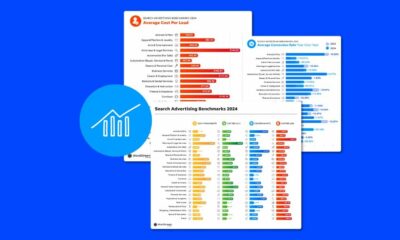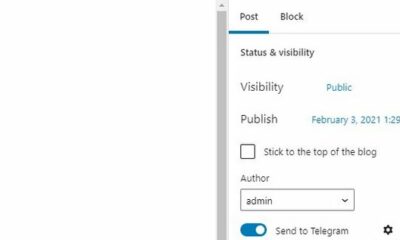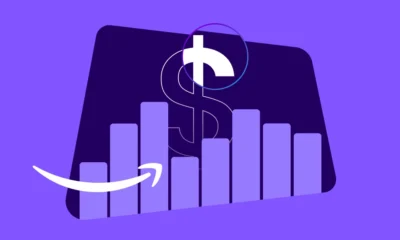AFFILIATE MARKETING
6 Non-Negotiables for Women in Power

Opinions expressed by Entrepreneur contributors are their own.
As I’ve started to reach new growth milestones in my business, I’ve had this growing realization: Knowing your non-negotiables isn’t just important; it’s essential. Not having them clear? Well, that’s a straight ticket to Discontent City, which, let me tell you, doesn’t do any favors for your success, present or future.
It’s way too easy to let things slide, isn’t it? You make excuses for others (and yourself) and turn a blind eye to signs that all’s not well because, hey, losing a client sounds like a nightmare, right? Or maybe you’re so dazzled by what could be that you compromise what is without even realizing it.
These thoughts have been swirling in my head ever since I attended the Black Women’s Power Summit. The stories I heard from these incredible women, who’ve faced and conquered massive hurdles to secure their spots in positions of power, really hit home.
Here are six non-negotiables from myself and some of the powerful women we all look up to that will help you maintain your success and help you push through to the next level.
Related: Stepping Into Your Power as a Female Leader
1. Have uncomfortable conversations immediately
Let’s have uncomfortable conversations. I used to dodge them like a pro. But, facing them head-on? That’s where the magic happens. More often than not, I’d find out I was missing a piece of the puzzle. Whether they changed my view or cleared the air, those talks always left me feeling lighter, ready to focus on what matters.
2. Wait 24 hours before making decisions fueled by emotion
And here’s a rule I live by now: If a decision is riding on a wave of emotion, I hit pause for 24 hours. It’s amazing what a little time can do for perspective.
3. Don’t accept less than the energy you bring
Accepting less than I’m giving? No more. That’s true for work and life. Steering clear of toxic people sounds obvious, but we’ve all been there, keeping someone around when, deep down, we know they’re just bringing drama and draining our energy.
Related: 5 Women Entrepreneurs Share Their Top Advice for Finding Your Path to Career Success
4. Don’t be afraid to ask things that enable you to show up as your best
When national talk show host and actress Sherri Shepherd was asked to be on tour with Babyface, the local glam team was not equipped to style a woman of color. The team could not style her wig, and the foundation didn’t match her skin. Can you imagine having to host a large-scale event, looking up at the monitor, and being distracted because the reflection is not of your standard?
As women, it’s often implied that asking for anything more than what is provided is considered “high maintenance.” Don’t be afraid to ask for what you need to show up as your best self, and don’t expect anyone to understand your request as they’re not on your path and they’re not the ones who have to show up in your shoes.
5. Understand that work-life balance is a lie
I listened to Thausandra Brown Duckett, CEO of TIAA, talk about how work-life balance is a lie. Her suggestion is to treat your life like a diversified portfolio. She said work-life balance is a lie because it never reconciles. She suggests living your life like a diversity portfolio. Write down everything that matters to you, and allocate based on your priorities. Over time, you will outperform in all areas. Do not put all your time or energy into one thing. Don’t forget to give yourself the grace to recalibrate your portfolio as needed.
6. There must be incentives to innovate
And there’s one gem I picked from Thai Randolph, who co-founded HartBeat Productions with Kevin Hart, that’s become a mantra for me: She said that in every opportunity, there must be something intrapreneurial. What that looks like is having the opportunity to build things, break things and scale things. There has to be a real incentive to innovate.
Related: 5 Trailblazing Black Women Entrepreneurs Share How They’re Breaking Barriers — And How You Can Too
Honestly, my non-negotiables aren’t groundbreaking, but ever since I’ve put them front and center, communicated them to my team and decided to live by them, the difference has been transformational. Thanks to these non-negotiables, my company, Society22 PR, made it on Inc.’s Fastest Growing Companies list, and we have been able to nurture a company culture that’s beyond what I dreamed.
So yes, these reflections on my non-negotiables have reshaped my approach to business. It’s not just about setting boundaries; it’s about creating a space where you, your team and your business can thrive. And let me tell you, the result has been pretty great.
AFFILIATE MARKETING
Brand New GPT-4o Revealed: 3 Mind Blowing Updates and 3 Unexpected Challenges for Entrepreneurs

Opinions expressed by Entrepreneur contributors are their own.
Unveiling OpenAI’s GPT-4.0: The latest AI with vision, auditory, and emotional intelligence abilities is revolutionizing industries. How will it affect your business?
In today’s in-depth discussion, I uncover three astonishing updates in GPT-4.0’s technology poised to redefine customer interaction, marketing strategies, and operational efficiency. We also confront three critical challenges this AI evolution brings, including ethical considerations, market disruptions, and the competitive landscape—essential insights to keep your venture at the forefront of innovation.
Take the AI skills quiz here (available for a limited time) and equip yourself with practical knowledge by grabbing a copy of my new book, ‘The Wolf is at the Door – How to Survive and Thrive in an AI-Driven World.’
AFFILIATE MARKETING
How to Turn Your Hobby Into a Business

Opinions expressed by Entrepreneur contributors are their own.
A few years ago, my friend Sabah turned her passion for cooking into a chef-on-demand business. She started off serving her local Cleveland area, quickly grew to cover other major Ohio cities and plans to expand even further. She is just one of the many people I know who have turned their passion project into a successful business.
We all have our passion projects. We do them because they’re fun, or we like the challenge, or they’re our way of doing some good in the world. From time to time, though, our niche interests and hobbies lead us to marketable ideas. For many, that’s as far as it goes; they don’t know how to take the next step.
Sabah had a shortcut — she’s married to my friend and business partner, who knew not only the next step to take but all the steps after that. If you’re not lucky enough to have a spouse or friend who can help, here’s how to turn your passion project into a successful business.
Related: Ten Tips To Turn Your Passion Project Into A Business
Hobbies that make great side hustles
So you have a niche hobby, and you’re wondering: How can I make some money from this? It’s important to remember that not all hobbies are created equal, financially speaking. And a niche interest that might have driven profits 20 years ago (collecting Beanie Babies, say) could be a financial sinkhole today.
By keeping a pulse on the zeitgeist, you can anticipate trends and hobbies gaining public interest — and capitalize on those trends. Some, like the following, are side hustle ideas you could start at any time.
Photography
Senior portraits, weddings, special events, professional headshots — quality and affordable photography never lacks in demand. With a website highlighting your work, you can book clients and start earning money from your passion.
Coding
From bug bounty programs to website design, freelance coding offers major earning opportunities. A background in HTML, Python, Java, C++ or a myriad of other coding languages can be a financial boon.
Home design
If you designed your home to belong in an issue of Architectural Digest, others will take notice. Consult on color palettes, furniture selections, room layouts and lighting — and bring your curated aesthetic to the masses with a home design business.
Video and audio production
Whether promoting a brand on social media or starting a podcast, freelance producers can bring a marketing campaign to life. Sell yourself with past work, and mention your experience with programs in the Adobe Creative Suite or Pro Tools.
Gardening
Your green thumb could put some green in your pocket. The landscaping and gardening industry was valued at more than $250 billion in 2024, according to Mordor Intelligence, and if your own garden is thriving, you can fill a niche in your own (proverbial) backyard.
Writing
Can you construct clear and concise copy for a variety of clients? If so, the opportunities are as vast as your vocabulary. Wordsmiths can serve as speechwriters, copywriters, technical writers and ghostwriters, as well as assist with any editing needs.
Baking
Your beautiful cakes, cookies and baked goods could be more than delicious treats; they could be a source of income. Many entrepreneurs found success with home baking during the pandemic, and with proper planning and consistent clients, you can join them.
Vetting if your hobby could be a business
Before you make any hard commitments or major financial decisions, consider if your niche hobby can earn consistent money. Who is the target client? How much are current practitioners charging? How much money do you have saved? How much do you expect to make?
It’s crucial to be clear-eyed about expectations before investing your own money into your venture. The following steps can help you assess whether or not to turn your passion project into a side hustle — or even a career.
Run it by friends
When we have that eureka moment, it sometimes blinds us to flaws in our logic. To get a quick check, run your idea by a few trusted friends. They might be able to point out roadblocks you didn’t think of or know a way to bring your idea to life. For Sabah, that meant asking other chefs for input. Avoid relying solely on one or two peoples’ opinions, but do gauge your friends’ enthusiasm. After all, close confidantes have your best interests in mind.
Analyze the market
Chances are, others have had your idea. Sabah wasn’t the first to think of a chef-on-demand service, but when she analyzed the market, she realized her idea could still work. Market analysis requires thoroughly researching consumer trends and expectations, market size and the demand for your offering.
To truly excel, you must conduct a thorough analysis of your rivals. Although they might offer a comparable product, your goal is to surpass them. Analyze their customer feedback to identify gaps. When you look hard at similar businesses, you might find opportunities to fill the gaps they’re leaving.
Network
Networking with others who have launched their business or product can be invaluable. They’re ahead of you on the journey and can help you avoid costly missteps. If you’re lucky, you might find someone with similar experience and a willingness to mentor you. A good mentor can help you find the path forward when you hit a roadblock. Keep the lines of communication with your network and your mentor open. They know the twists and turns and can save you headaches and expenses.
Devise a business plan
Don’t invest significant money into a project before creating a detailed business plan. Prior steps, such as analyzing the market, will help you write this document, and you’ll want to come away with clear financial expectations. Do the math — calculate your startup and overhead costs, insurance, marketing budget, earnings expectations and taxes. This will give you some base-level expectations and a roadmap to funding, if necessary.
Getting your side business off the ground
You’ve done your research. You’ve talked to friends and other entrepreneurs. You’ve analyzed the market and built a business plan. Now it’s time to take the first big step: getting your side business off the ground.
Turning passion into profit takes work. Don’t be discouraged. There may be moments of doubt and anxiety as your business slowly ramps up. Lean on mentors, and consult your business plan. Like Sabah, if you’ve done the proper pre-launch work, you can keep your head down and follow the roadmap. The following steps can position you for success when turning your niche hobby into a business.
Build an MVP
In the software development world, a minimum viable product (MVP) is a way to test your idea with a small group of early adopters. It’s essentially an early product version with just a few core features. For Sabah, the MVP was a limited menu with a select set of chefs — and she was one of them. Once she proved her idea would work, she hired more chefs and added more meals to the menu based on the feedback she got from her customers. Early and genuine feedback is the goal of an MVP. After all, it’s easier and less expensive to make changes at the beginning of the development cycle than in the middle of it.
Related: 5 Tips for Solidifying MVP, and Why It’s the Most Important Aspect of Building a Startup
Set achievable goals
Be realistic about your first-year financial expectations. In fact, it’s common for new businesses to lose money in their first year of business as they pay back initial investments and build consistent customer bases. Sabah set goals — both financial and personal — that she could reasonably achieve. But don’t mistake this for easy goals. You should be ambitious but practical when planning to achieve your goals.
Get help
Sabah didn’t build her business alone. She knew she needed help building the web applications her fledgling company needed and outsourced that work. Trying to do everything leads to stress, burnout and costly mistakes. It also takes you longer to get to market and could mean competitors beat you to the finish line. Engage freelance help or outsource product development to a team with the knowledge and bandwidth to quickly build a high-quality product.
Knowing when to get help involves recognizing your strengths and weaknesses. Maybe you can build the product but need help with market analysis. Or maybe you need help with building a brand identity and marketing the product. Outsourcing some of the work frees you up to focus on what you’re good at and can take stress off your shoulders.
Related: Asking For Help Is Good For You and Your Business
Keep your finger on the pulse
Markets and trends can shift rapidly, so it’s essential to keep tabs on competitors and monitor your customers’ needs. The last thing you want is a product that’s outdated by the time it launches or a business plan built around last year’s “it” thing. By staying up-to-date on market and cultural trends, you can be ready to shift priorities when the time is right.
It’s been a joy to watch my friend’s business grow. She’s met challenges with grace and never lets setbacks slow her down. And that, too, is key to turning your passion project into a successful business: believing in your vision enough to stick with it, no matter what.
AFFILIATE MARKETING
Site Traffic Down? Google Just Made Some Big Search Changes

Google is now doing the Googling for its expansive U.S. audience — and news publishers are facing potentially multi-billion-dollar consequences caused by the change.
Google announced on Tuesday that it is applying AI to high-impact elements of search, from AI summaries to pages of AI recommendations in clustered groups. AI summaries, which appear at the top of search results and neatly summarize content found across the web, started rolling out on Tuesday to all of Google’s 246 million unique U.S. users.
The AI summaries mean that websites across the board will get less traffic, as people simply search and read what the AI has generated without clicking on anything.
As newsrooms get less traffic and less money, their ability to create fresh content diminishes. At the same time, Google becomes less of a gateway to sources and more of a direct source Anastasia Kotsiubynska, Head of SEO at SE Ranking, shared with Entrepreneur.
“Most likely, there will still be misleading information in search results and hallucinations, and many users will probably use this information without double-checking,” Kotsiubynska cautioned.
Google I/O 2024 on May 14, 2024. (Photo by Christoph Dernbach/picture alliance via Getty Images)
Google’s search changes could cost websites $2 billion collectively; some could lose two-thirds of their traffic, according to data from media industry growth company Raptive.
“This will be catastrophic to our traffic, as marketed by Google to further satisfy user queries, leaving even less incentive to click through so that we can monetize our content,” Danielle Coffey, the chief executive of the News/Media Alliance, told CNN Business.
This is Search in the Gemini era. #GoogleIO pic.twitter.com/JxldNjbqyn
— Google (@Google) May 14, 2024
Google, a major tech company with over 90% of the global market share in search, can now frame search results however it wants with AI summaries, and pull from websites without guaranteeing site traffic or profit.
Related: Two Yale PhDs Are Trying to Make AI Hallucinate 10x Less
“AI Overviews relies on content creators’ intellectual property, which raises serious questions about compensation and fairness,” said Raptive in a statement.
Google does link to sites within its summary, citing its sources.
Unlike OpenAI, which has entered into deals with major publishers like Axel Springer and The Financial Times to compensate publishers for training AI on their articles and linking directly to them, Google has yet to publicly announce a similar deal with a major publication.
OpenAI has also earned the ire of some publishers, with the New York Times filing a lawsuit against the company over copyright grounds in December.
Google does have a $60 million deal with Reddit, announced in February, to train its AI on Reddit data.
-

 MARKETING5 days ago
MARKETING5 days ago18 Events and Conferences for Black Entrepreneurs in 2024
-

 MARKETING6 days ago
MARKETING6 days agoIAB Podcast Upfront highlights rebounding audiences and increased innovation
-

 MARKETING7 days ago
MARKETING7 days agoFoundations of Agency Success: Simplifying Operations for Growth
-

 SEO5 days ago
SEO5 days agoWhy Google Can’t Tell You About Every Ranking Drop
-

 PPC5 days ago
PPC5 days agoGoogle Ads Benchmarks 2024: New Trends & Insights for Key Industries
-

 WORDPRESS6 days ago
WORDPRESS6 days ago5 Must See Telegram Plugins for WooCommerce
-

 SEO6 days ago
SEO6 days agoHow To Use ChatGPT For Keyword Research
-

 PPC5 days ago
PPC5 days agoThe Ultimate Guide to Click Fraud















